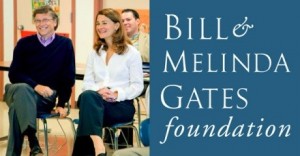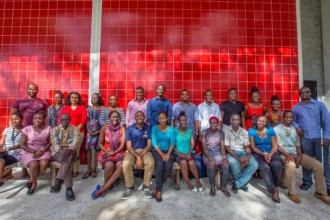In over a decade, Africa has attained the fastest growth in mobile subscribers in the world. The level of technology is also increasing quickly, with 1.9 billion people in the world using smartphones last year rising to an estimated 5.6 billion by 2019. In Africa this has translated into mobile phone technology being used in the agriculture industry. This is expected as 7 out of every 10 people in Sub-Saharan Africa are farmers. By using mobile technology farmers can learn about imported seeds and fertilizers, get educated about techniques like crop rotation, follow the daily weather report and track market prices – all via text message. Additionally the benefits of applying mobile technology in the informal agriculture sector extend to streamlining financial services.
This is right on trend as the technology in relation to mobile phones and agriculture is also developing at an unprecedented rate. This is coming to Africans in the form of mobile applications that are applicable on both smartphones and basic phones. Two apps are making particular advances; Esoko and FarmerConnect. Esoko is focused on linking farmers to markets with automatic market prices and offers from buyers. It also disseminates personalised extension messages based on crop and location; furthermore the service manages extension officers and lead farmers via SMS messaging. Whereas FarmerConnect is a cloud-based and mobile-enabled platform that delivers personalised agricultural extension services. The platform sends out intelligence in either text or audio form in local languages to smallholders and farmers.
This whole mobile phone phenomenon has recently come to light as result of Bill and Melinda Gates’ Foundation annual letter, where they promise that Africa will soon be able to feed itself. The impact of foundations such as these is real and albeit a small one, they make a legitimate difference. However let us examine their track.
 About a decade ago Bill Gates decided that the major challenge faced within the U.S education system was the size of the high schools. He then proceeded to spend $2 billion to convince school districts to trim their high schools. These districts lined up to get grants from his foundation to downsize their high schools, where over 2000 of them were converted to small schools. The only problem was once the time came for results, they did not reflect the impact the billionaire philanthropist thought they would. It was evident that the students in larger schools got better test scores than those in his prized small schools, which led him in 2008 to simply walk away from what was his once precious project. The link between the resizing of schools and the agriculture phones in Africa is an abstract one; both are driven by a billionaire and his wife wanting to leave a legacy behind them. This is dangerous in the sense that the ultimate goal here is not to make a difference for the better, but to never be forgotten.
About a decade ago Bill Gates decided that the major challenge faced within the U.S education system was the size of the high schools. He then proceeded to spend $2 billion to convince school districts to trim their high schools. These districts lined up to get grants from his foundation to downsize their high schools, where over 2000 of them were converted to small schools. The only problem was once the time came for results, they did not reflect the impact the billionaire philanthropist thought they would. It was evident that the students in larger schools got better test scores than those in his prized small schools, which led him in 2008 to simply walk away from what was his once precious project. The link between the resizing of schools and the agriculture phones in Africa is an abstract one; both are driven by a billionaire and his wife wanting to leave a legacy behind them. This is dangerous in the sense that the ultimate goal here is not to make a difference for the better, but to never be forgotten.
I believe that this year the Gates Foundation will shower African tech companies andt agriculture associations with billions of dollars to pursue this agenda. Again I must stress that this is all well and good, but I also must advise that us Africans we must accept the inevitable offer on our own terms. After all, should the project fail it is us who will have to deal with the consequences.





